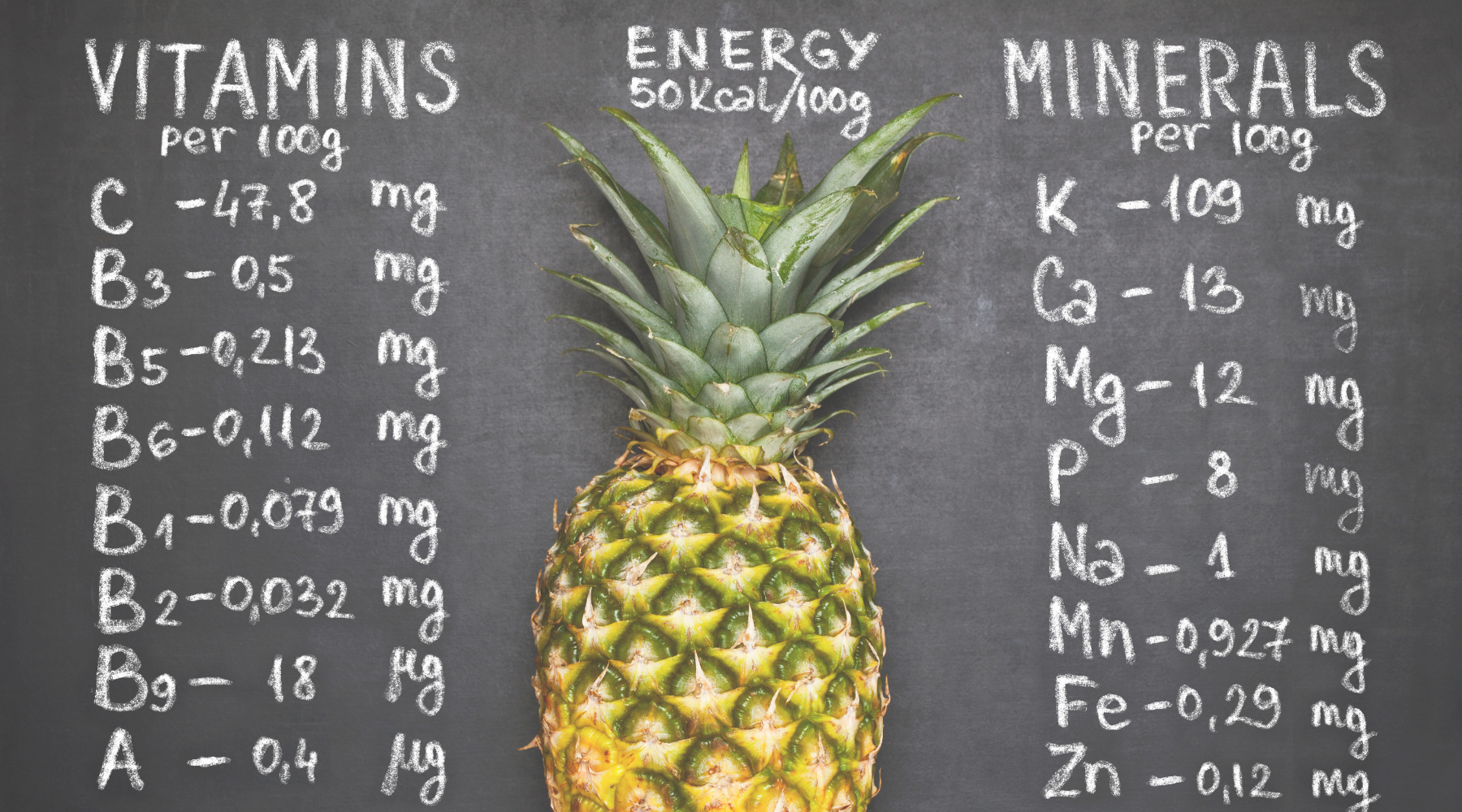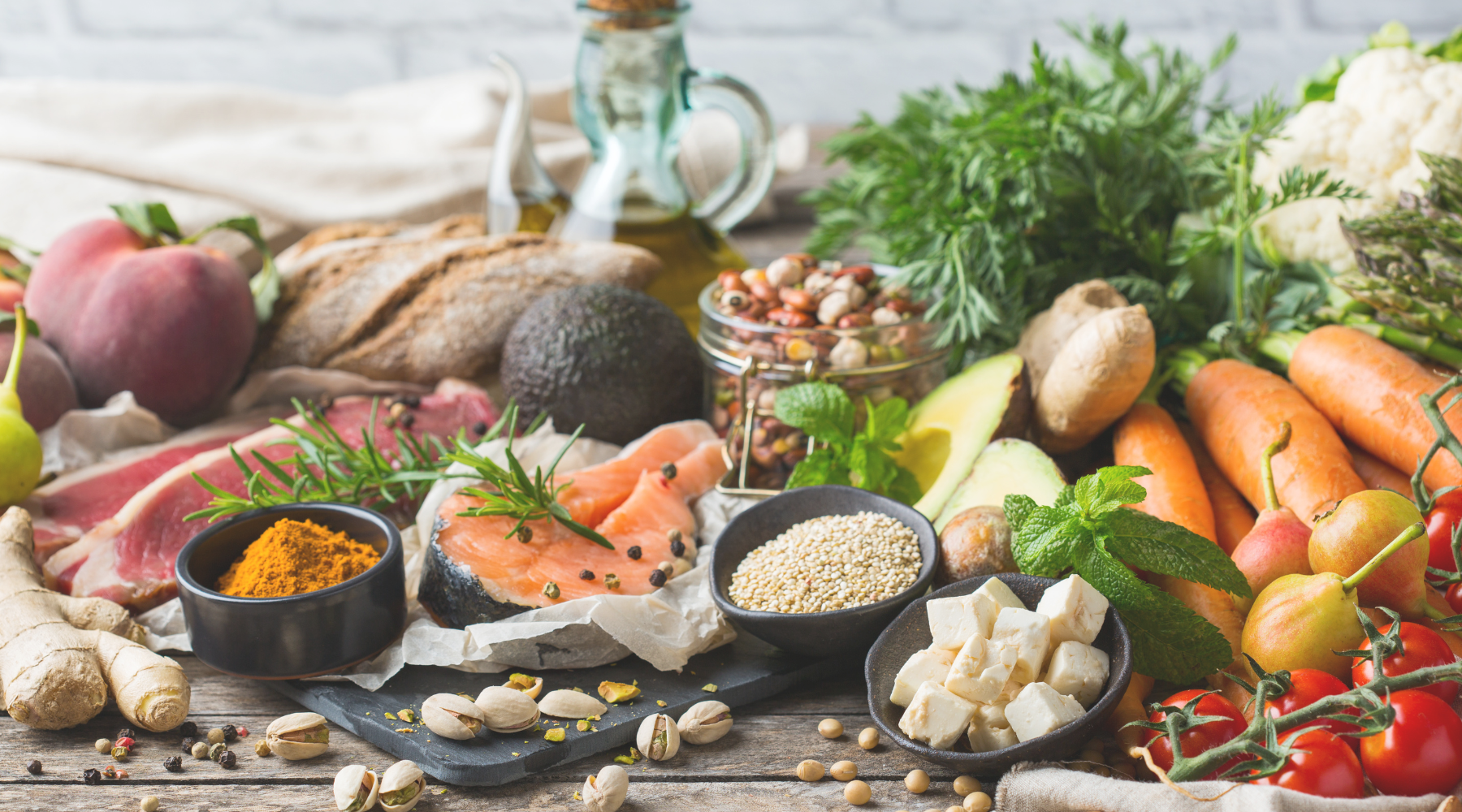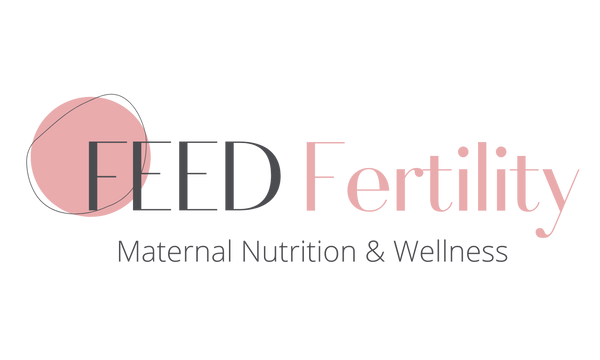
Ultimate Nutrition Guide for Better Egg Health
Any woman who’s ever felt the pressure of the “ticking clock” has thought about her eggs. After all, one of the key factors influencing our ability to get and stay pregnant is the quantity and quality of ovum we have left. While age plays a significant role in this equation, research suggests that dietary choices can significantly impact egg quality, and ultimately your overall fertility potential. Which is good news!
This blog post dives deep into the world of nutrition for egg health. We explore how the right nutrients can support healthy egg development and ovulation, ultimately increasing your chances of a successful pregnancy. Read on to learn the essential macronutrients your body needs, the best micronutrients for egg health, and specific food choices that can optimize your chances of conceiving healthy babies.

Macronutrients for Egg Health & Fertility
Our bodies rely on a balanced combination of macronutrients – carbohydrates, protein, and healthy fats – to function optimally. When it comes to the quality of our ovum, each macronutrient plays a specific role.
Complex Carbohydrates
The quality of your eggs is determined, in part, by the availability of glucose – a simple sugar that is broken down from carbohydrates and used for energy by cells. Carbohydrates are broken down into glucose and released into the bloodstream. Insulin is then secreted by the pancreas to help transport blood sugar into your cells. If blood sugar levels rise too quickly (from eating refined carbs like white bread or white rice), insulin levels will spike as well. Over time, high insulin levels can disrupt the delicate balance of other hormones involved in ovulation and egg development. High blood sugar and insulin levels impair mitochondrial function, which in turn, can cause chromosome abnormalities. Therefore, when it comes to blood sugar balance, not all carbohydrates are created equal. The best carbohydrates are “complex” in that they are digested slowly and only moderately raise blood sugar, preventing sudden bursts of insulin, which can be harmful for blood sugar balance and has been linked to an increased risk of ovulatory disorders.
- Focus on: Whole grains (brown rice, quinoa, whole-wheat bread), fruits, and vegetables, legumes, nuts & seeds.
- Limit: Refined carbohydrates found in sugary drinks, white bread, and pastries. Studies suggest that high-glycemic index diets, rich in refined carbohydrates, may be linked to decreased fertility
Protein
Protein is essential for building and repairing tissues, including the follicles that house your eggs. Aim for a variety of protein sources throughout the day to ensure you're getting all the essential amino acids your body needs.
- Include: Lean protein sources like chicken, fish, beans, lentils, and tofu.
- Consider: Plant-based protein options are becoming increasingly popular and can be a great way to add variety to your diet.
Healthy Fats
Don't shy away from healthy fats! They play a vital role in hormone production, including those involved in ovulation, help your body absorb essential vitamins for fertility, and support healthy cell membranes (including those in your ovum). In particular omega-3 fatty acids and oleic acids (a healthy monounsaturated fat) have shown to support higher quality embryos in women as compared to those which have deficiencies in these essential fats. On the other hand, trans fats have shown to be detrimental to egg quality due to their inflammatory properties, and too much saturated fats have been shown to negatively affect egg development.
- Embrace: Omega-3 Fatty Acids as found in salmon, tuna, herring, sardines, flaxseeds, chia seeds, and hemp seeds, and Monounsaturated fats as found in olive oil, avocados, and nuts.
- Incorporate: Polyunsaturated fats like those found in fatty fish (salmon, tuna) and flaxseeds.
- Avoid: Hydrogenated and trans fats as found in many fried foods, margarines and shortenings.
- Moderate: Saturated fats as found in butter and red meat
Remember, a balanced approach is key. Focus on creating a plate filled with a variety of these macronutrients to provide your body with the building blocks it needs for optimal health and fertility.

Key Micronutrients for Egg Health & Fertility
Micronutrients, including vitamins and minerals, act like tiny powerhouses within your body, influencing various processes, including those essential for fertility. Let's explore some key micronutrients that play a vital role in egg health:
Folate
This B vitamin is known for preventing neural tube defects in the developing fetus. Folate also plays an important role during the development of the egg because it is needed for making new DNA and proteins, and detoxifying the body. Both processes play an important role in early egg development. Adequate folate intake before and during pregnancy is essential.
- Start Early: The American College of Obstetricians and Gynecologists (ACOG) recommends that all women of childbearing age consume 400 micrograms of folic acid daily. If TTC, start at least 3 months prior to your first month of trying.
- Natural Sources: Leafy green vegetables, lentils, and fortified grains are all excellent sources of folate.
Iron
Iron is essential for red blood cell production, which ensures proper oxygen delivery to the reproductive organs, including the ovaries. Iron deficiency can lead to ovulation irregularities and impact fertility.
- Be Aware: Studies have shown that iron deficiency can be a factor in ovulatory dysfunction
- Iron-Rich Choices: Lean red meat, poultry, fish, beans, and dark leafy greens are all good sources of iron.
- Proceed with Caution: Excessive iron intake can be harmful. Consult your doctor if you have concerns about your iron levels.
Zinc
Zinc plays a role in DNA synthesis and cell division, both of which are critical for healthy egg development. It’s a necessary nutrient for egg maturation and ovulation. Zinc levels tend to decline with age, which may explain why older women have more difficulty conceiving. One study found that supplementing with zinc improved egg quality in older women.
- Food Sources: Oysters, crab, beef, pork, chickpeas, cashews.
- The Right Amount: The recommended dose of zinc is 40 mg per day.
COQ10
While not technically a vitamin, Coenzyme Q10 plays a pivotal role in egg health. In addition to being an antioxidant that helps to protect the egg from damage, CoQ10 plays a role in energy production, which is critical for early embryo development. The inability for our mitochondria to make enough ATP is a big problem for egg quality and is likely a major way in which age negatively affects egg quality.
- Age Factor: CoQl0 levels tend to decline with age, which may explain why older women have a more difficult time conceiving. Women over 35 who are TTC should be particularly mindful of this nutrient.
- Supplementation: It is very difficult to obtain significant amounts from food, so adding a supplement that contains 400-600 mg per day is best – starting to take it at least 3 months before trying to conceive.
Vitamin D
Emerging research suggests a potential link between vitamin D levels and fertility outcomes. Vitamin D may play a role in egg development and maturation, and assists in the production of the anti-Müllerian hormone (AMH), which is the measure of a woman’s ovarian reserve.
- Soak Up the Sun: Sunlight exposure is a natural way to boost your vitamin D levels.
- Dietary Sources: Fatty fish, egg yolks, and fortified foods like milk and cereal can also contribute to your vitamin D intake.
- Consult Your Doctor: A blood test can determine your vitamin D levels and if supplementation is necessary.
Other Essential Micronutrients
Several other vitamins and minerals play a supportive role in overall health and potentially fertility. These include:
- Vitamin B6: Involved in hormone regulation and egg development.
- Vitamin E: An antioxidant that may protect eggs from oxidative stress.
- Selenium: Plays a role in healthy egg development and sperm function.
While a balanced diet rich in a variety of whole foods can provide most of these essential micronutrients, consulting a healthcare professional or registered dietitian can help determine if supplementation is necessary for your individual needs.

Smart Food Choices for Egg Health
Now that we've explored the importance of specific nutrients for fertility, let's translate this knowledge into practical food choices you can incorporate into your diet:
Embrace the Mediterranean Diet
The Mediterranean diet is a pattern of eating that is traditional in countries bordering the Mediterranean Sea. Numerous studies have shown a positive association between the Mediterranean diet and improved fertility outcomes. For example, one study found that women who followed a Mediterranean diet had a lower risk of anovulation (a condition where ovulation does not occur) compared to women who did not follow this eating pattern. While the exact reasons why this diet is so beneficial is not known, it is hypothesized that it is connected to the anti-inflammatory properties of the foods the diet emphasizes, which help to decrease inflammation throughout the body – including in the ovaries. You can embrace this dietary pattern by eating more:
- Fruits and Vegetables: Aim for a rainbow of colors on your plate! Fruits and vegetables are packed with essential vitamins, minerals, and antioxidants that support egg health.
- Whole Grains: Opt for whole grains like brown rice, quinoa, and whole-wheat bread over refined carbohydrates. These provide sustained energy and help regulate blood sugar levels.
- Healthy Fats: Include healthy fats like olive oil, avocado, nuts, and seeds in your meals and snacks. These fats are essential for hormone production and nutrient absorption.
- Fish: Fatty fish like salmon, tuna, and sardines are excellent sources of omega-3 fatty acids, which may benefit ovulation and egg quality.
- Cooking Tip: In addition to the standard Mediterranean diet foods above, consider adding spices with powerful anti-inflammatory properties to your cooking routine like ginger and turmeric.
Fuel Your Body with Antioxidant-Rich Foods
Antioxidants work by scavenging harmful, cell-damaging toxins known as “free radicals.” Free radicals are generated by oxidative stress, which occurs when there is an imbalance between the production of free radicals and the body’s ability to repair the damage they cause. These molecules react with other molecules and cause oxidation which can damage DNA, proteins, lipids, cell membranes and mitochondria. The term “antioxidant” refers to a molecule that neutralizes these reactive oxygen molecules. Antioxidants, therefore, help to protect eggs (and the mitochondria powerhouses within them) from oxidative stress. Key nutrients which act as antioxidants in cells are Vitamins A, C, E, Selenium and Zinc. Foods that are high in these nutrients include:
- Berries: Blueberries, strawberries, raspberries are all loaded with antioxidants.
- Leafy Greens: Kale, spinach, and collard greens are packed with vitamins, minerals, and antioxidants.
- Colorful Vegetables: Bell peppers, carrots, sweet potatoes offer a variety of antioxidants and essential nutrients.
- Nuts and Seeds: Almonds, walnuts, and chia seeds are good sources of healthy fats and antioxidants.
- Other: green tea, matcha, dark chocolate (in moderation)
Limit Fertility-Hinders
While a balanced approach is key, certain foods may negatively impact fertility and decrease egg quality. These foods (when eaten in excess) may lead to DNA damage in the eggs, hormonal imbalances (which affect egg health), poor digestive health (which also greatly impacts egg health), poor embryo development and lower fertilization rates. Here's what to keep in mind:
- Processed Foods: Processed foods are often high in unhealthy fats (like trans fats), added sugars, and sodium, which can contribute to inflammation and disrupt hormonal balance.
- Sugar: sugar (including high fructose corn syrup) can spike blood sugar levels and potentially impact ovulation. Consume sugar-filled foods and beverages (including soda and fruit juice) in moderation
- Excessive Caffeine: While moderate caffeine intake is likely safe, excessive amounts can also hinder fertility outcomes.
- Allergens: It is important to avoid any foods you are allergic or sensitive to as these foods will cause additional inflammation in the body and will negatively affect egg quality.
Nourishing your body with the right nutrients plays a crucial role in promoting egg health and fertility. By embracing a balanced diet rich in essential vitamins, minerals, antioxidants, and healthy fats, you can create an optimal environment for healthy egg development and ovulation. With a commitment to healthy living and the power of good nutrition on your side, you can increase your chances of achieving your dream of a healthy pregnancy.

